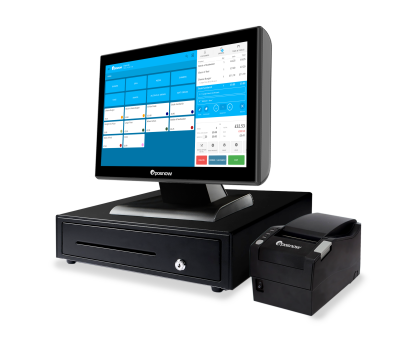How Much Do Hotel Owners Make?
Owning a hotel franchise sounds like one of those impossibly glamorous jobs you read about in a magazine or see on TV. While it can be glamorous, it can also be an incredibly difficult job that requires you to keep a thousand plates spinning all at once and uses every single one of your hospitality skills.
Becoming the owner of a hotel can be a deeply rewarding experience, but it does require a sizable investment. Before you embark on your new hospitality adventure, it’s important to make sure the investment would be the right option for you.
In this blog, we’ll be examining the average salary of hotel owners, how much a hotel makes a year, and the various expenses that come with hotel ownership. If you’ve ever wondered if hotel owners are rich, this is the blog for you.
How Much Hotel Owners Make Per Year?
According to the job post and review site Glassdoor, the average salary for a hotel owner in the UK is £31,547. This can vary wildly depending on the region, the type of hotel, and the reputation of the business.
According to the same source, this salary is supplemented by an estimated additional cash compensation (tips, commissions, profit sharing, etc) of £3,226. On Glassdoor, this compensation has a self-reported range of £641-£16,232. [1]
Things to consider before buying a hotel
Profit vs. Income
Conflating profit and income is an easy mistake to make, but it’s one you’ll need to avoid as a hotel owner. In order to count your hotel profits as salary, you can’t use that profit for anything but income. If emergency repairs need to be made and are taken from the hotel’s profit, then your salary as the hotel owner was just reduced by the cost of the repairs.
Profits are affected by several factors, including:
- Business taxes
- Business loan repayments
- Necessary items for your hotel (new equipment, repairs)
- Employee salaries
- Annual/semi-annual business insurance premiums
You may also have additional annual expenses that need to be taken into account. All of the above items will reduce your income because they’re taken out of your profit. Your income equals whatever’s left from the hotel profits once your business expenses are paid.
Franchise Fees
Franchise fees can be a nasty shock for unprepared franchise hotel owners. While there is the initial, one-time franchise fee for the privilege of using the hotel’s brand name, logo, etc, there may also be additional monthly or annual franchise fees to pay.
For instance, you might be required to pay a monthly marketing fee, depending on your franchise agreement. This fee helps the franchisor pay for marketing the brand in national and/or local markets, which directly benefits you.
You’ll also probably be required to pay a monthly royalty to the franchisor, as well, which could range from 4-12% of your profits, depending on your franchise agreement. Both of these recurring franchise fees are paid from your profits, further reducing your actual income.
Gain all the advantages of an EPOS system with detailed, flexible, downloadable reports, and so much more:
- Manage and update products quickly with easy-to-use software
- Expand your business into multiple channels and integrate with a variety of online platforms
- Manage multiple locations and salespoints with multi-site management
- Keep queues short with streamlined, modifiable sales processes
- Choose a setup that suits you with software and hardware options

Type of Hotel
Of course, which type of hotel franchise you operate can affect your annual profit, as well.
You might be surprised at the number of options you have here. There are upscale/luxury franchises, economy hotels, and mid-level hotels.
Luxury hotel franchises include brands like Wyndham and the Ritz-Carlton. These types of hotels typically include restaurants, bars, and more upscale options like room service, in-hotel spas, and hotel rooms equipped with the latest technology.
It’s estimated that the average initial start-up cost for a luxury franchise can run into many millions of pounds. That’s a lot of money to invest upfront, but you will be able to charge higher room prices and potentially generate greater profits long-term.
Economy franchises include brands like Travelodge, Yotel, and Sleep Inn. They offer frills-free rooms and may have cold breakfast options, but don’t typically offer hot breakfast items. On average, the initial start-up costs for an economy franchise are around the mid-hundred thousands to the low millions.
Mid-level franchises include brands such as Clarion Hotels, Best Western UK, and Park Inn by Radisson. These chains typically offer a hot breakfast and may have additional amenities such as a gym and/or pool area. Average initial start-up costs for a mid-level hotel chain come in at around tens of millions.
Of course, the more amenities your hotel offers, the more items you’ll need to budget for. These amenities can include:
- Pool maintenance, equipment, and repair
- Hiring and retaining a bartender
- Alcohol and food supplies for a restaurant or bar
- Maintenance of exercise equipment
- Maintenance of technology used in conference rooms/meeting spaces
- Additional employees to staff a restaurant, bar, spa, etc.
You’ll need to determine whether the amount you’ll spend to maintain a high-end hotel is offset by the higher room prices you’ll be able to charge.
Age of the Hotel
You should always consider the age of the hotel building that you’re thinking about investing in. It may seem obvious, but if you’re buying a franchise hotel with a new or newer building, you’ll have fewer initial upkeep costs, which means you’ll have a much higher profit margin.
Older hotels will typically require more maintenance and repairs to keep them in optimal shape, which will cut into your annual profit, meaning less take-home pay for you. Don’t forget that in addition to maintenance staff, you’ll also need to think about:
- The difficulty of obtaining original parts for older equipment
- The possibility of lead or asbestos in older buildings
- The ability to replace damaged items with similar fixtures (furniture, carpet, lighting, bedding).
- Remodelling costs required by the franchisor
But, an older hotel business may come with a less expensive franchise tag than a new build, so you’ll need to consider whether remodelling and higher maintenance and repair costs are offset by the smaller up-front investment.
Operating Expenses
Finally, it’s important to think about all of your operating expenses, since they’ll factor into the overall profitability of the average hotel.
If you fail to plan for these expenses ahead of time, you won’t have an accurate idea of your weekly, monthly, or annual profit, and will have no idea what you’ll be able to count on as income from your business.
If you’re able to craft an accurate budget from the beginning, you’ll have a good idea of how much you can reasonably expect to earn from a successful hotel.
This goes beyond just the supplies you’ll need for the hotel (like linens) but includes the intangibles, such as business insurance, employee salaries, recurring franchise fees, and a high-quality hotel point of sale system.
The perfect hotel POS
At Epos Now, we’re proud to offer an electronic point of sales (EPOS or POS) solution specifically tailored to the hotel industry.
With the Epos Now Complete Solution, you can track your bookings, restaurant sales (if applicable), and even staff performance on one system, streamlining multiple processes and saving you money. Plus, Epos Now can make check-in and check-out a quick, easy, and enjoyable process for your guests.
If you’re interested in hearing more about Epos Now, get in touch with our expert team below.




